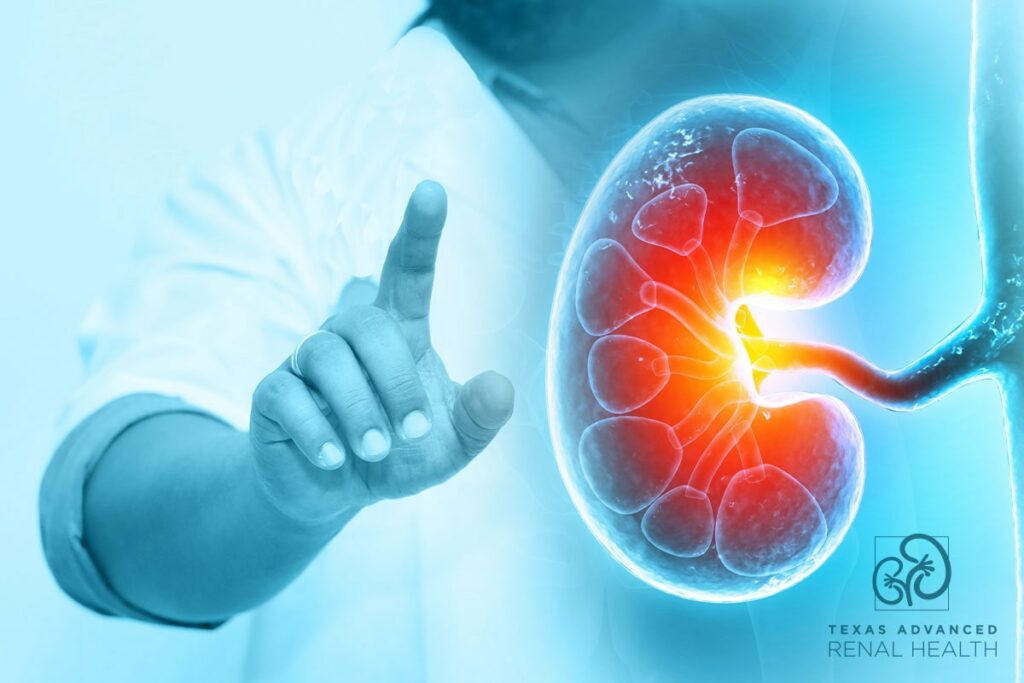What Stage of Kidney Failure Requires Dialysis

Your kidneys help keep your body healthy by filtering your blood and removing excess fluids and waste products. If they fail, which means they no longer perform the way they should, dangerous levels of waste, toxins, electrolytes, and fluid can build up in your body, putting your health at risk. The only options for survival at this point are dialysis or a kidney transplant.
What Stage of Kidney Disease Requires Dialysis?
Chronic kidney disease is a progressive condition that, according to the National Kidney Foundation (NKF), has five stages. Each is determined using the eGFR or estimated glomerular filtration rate, which indicates the efficiency of your kidney in filtering waste. The eGFR is determined based on a formula that considers a patient’s age, race, gender, and serum creatinine levels.
Early Kidney Disease – Stages 1 to 3: In the early stages of chronic kidney disease, the kidneys continue to filter waste and excess fluid from the blood efficiently. Early treatment and lifestyle changes can help slow or even prevent the progression of kidney disease.
- Stage 1: eGFR 90 or Higher: Here, the kidneys continue to function well with no signs of damage.
- Stage 2: eGFR 60-89: The kidneys continue to work well. However, test results may reveal signs of kidney disease, including protein in the urine.
- Stage 3: eGFR 30-59: Stage 3 is split into Stage 3a – GFR 45 – 59 and Stage 3b – GFR 30 – 44. Here, the kidneys can no longer filter waste and excess fluids effectively. Complications may include high blood pressure, anemia, swelling of the hands or feet, and overall fatigue.
Advanced Kidney Disease – Stages 4 to 5: In the advanced stages of kidney disease, the kidneys struggle to filter your blood and may stop working altogether.
- Stage 4: eGFR 15-29: Moderate to severe kidney damage can lead to high blood pressure, bone disease, heart disease, swollen hands and feet, and fatigue.
- Stage 5: eGFR less than 15: Here, the kidneys are close to failing or have already failed. The only options for survival include dialysis or a kidney transplant. Our Texas Advanced Renal Health team will help you navigate your options to continue living your life to the fullest.
What Are the Signs of Kidney Failure?
Signs of kidney failure requiring dialysis may include changes in urination like decreased output, bubbly or foamy urine, and pressure when urinating. Patients usually experience swelling of the limbs due to excess fluid buildup. Fluid may also build up in the lungs and around the heart, leading to shortness of breath or chest pain.
Kidney failure may result in high blood pressure that’s hard to control, loss of appetite, vomiting, headaches, fatigue, weakness, back pain, itching, muscle cramps, difficulty sleeping, and a metallic taste in the mouth. If you experience any of these symptoms, it’s important to have them evaluated.
Understanding Dialysis and What You Can Expect
Dialysis is a procedure that takes over your kidney function, filtering out waste, toxins, and excess fluid from the body when the kidneys fail to function the way they should. There are two types of dialysis: hemodialysis and peritoneal dialysis. Dr. Saddedin will recommend the option that’s ideal for you.
- Hemodialysis: This procedure involves circulating your blood through a machine, which filters it before returning it to your body. Hemodialysis typically occurs at a dialysis center, although it can sometimes take place at home.
- Peritoneal Dialysis: This procedure involves removing waste through the blood vessels lining the walls of the abdomen, called the peritoneum, so your blood never leaves your body. This procedure typically takes place at home.
Trusted Kidney Care Near Me in McKinney, TX
Contact Texas Advanced Renal Health to learn about managing chronic kidney disease and preventing its progression. If you require dialysis, Dr. Saddedin and our dedicated team will provide you with the guidance and care you need to continue living life to the fullest. We invite you to call us at 972-548-4833 to schedule your appointment today!
